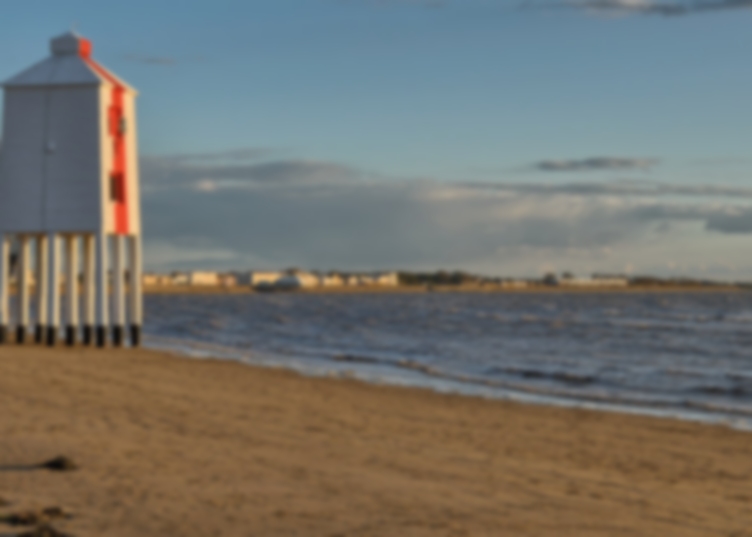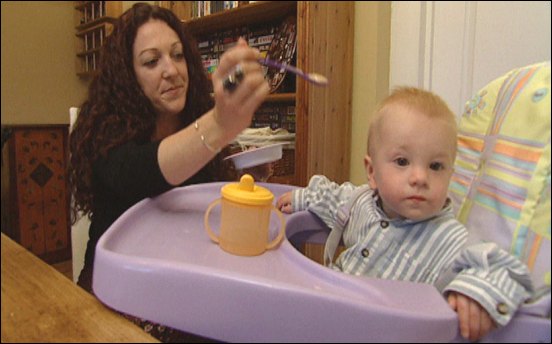November 6, 2005
Burnham-On-Sea couple to be focus of ITV1 baby documentary show
A Burnham-On-Sea couple who were forced to have their baby in Basingstoke rather than a local hospital because no beds were available will push for change by appearing on an ITV1 current affairs programme this week.
For many parents, caring for a newborn baby is one of their most rewarding experiences – and it can also be one of their most challenging. Healthy full-term infants can cause enough stress as parents learn to cope with their babies’ demands. But imagine if your baby was born prematurely and then separated from you by the walls of an incubator.
Ian and Jo Slator’s son, Cohen, pictured above, was one such infant. Going into labour eight weeks early was bad enough. But then Taunton – one of the nearest hospitals to Burnham – delivered another surprise.
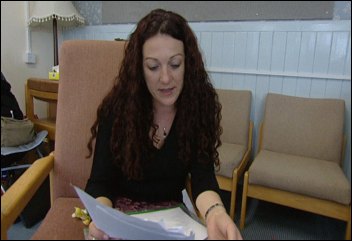 “When I went into labour all the incubators were full up in the special care baby unit,” Jo tells ITV West’s West Eye View.
“When I went into labour all the incubators were full up in the special care baby unit,” Jo tells ITV West’s West Eye View.
“Therefore they had to then find me the nearest unit that could take Cohen and myself and, unfortunately after trying a lot of hospitals, they managed to find me one, but it was in Basingstoke.”
Jo was sent outside the region to have her baby because the neonatal unit at Taunton’s Musgrove Park had been operating 24 hours a day, seven days a week – at full capacity. In hospital jargon this is known as an ‘inappropriate transfer.’ It was certainly inconvenient – Jo was 120 miles from home.
“I arrived in Basingstoke on my own. My husband had to actually come separately because he wasn’t allowed to travel in the ambulance. So I didn’t realise I was there for the long haul. As far as we knew I was going back to Taunton on the Monday and I would have the baby there,” said Jo.
Cohen was born later that day and was rushed into intensive care. Jo asked for them to be sent back to Taunton but her local hospital remained full. Cohen spent the next month in Basingstoke Hospital.
As Cohen grew stronger he was taken out of intensive care and moved into a high-dependency cot where he could breathe on his own. Then his health deteriorated unexpectedly.
“On the third week Cohen had seizures and had convulsions in the night, which was very traumatic. I was there fairly nearby in my room sleeping, and I had to go in and witness my baby, who was still blue and just been resuscitated, in a terrible state.”
“The nurses advised me to get Ian, my husband, there immediately because Cohen would probably not make it, and all I could think was that it was a two-hour drive. Which I can not imagine what that must feel like to go through. Just awful.”
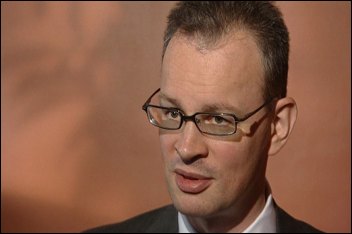 Fortunately, Ian and Jo’s healthy son survived and is now back at home, but the memories are not fading quickly.
Fortunately, Ian and Jo’s healthy son survived and is now back at home, but the memories are not fading quickly.
The investigation by the West Eye View team revealed evidence that premature and sick newborn babies in the West country may not be getting the care they need.
The premature baby charity, BLISS, says special care baby units across the country are struggling to cope with demand. Babies are routinely transferred from the hospital where they are born to other units, dozens or even hundreds of miles away, adding to their difficulties and their parents’ anxiety.
BLISS chief executive Rob Williams, pictured above, says neonatal services are under-resourced, over-stretched and slow to respond to innovation. “If a baby goes into a unit which is half-full it has a 50% less chance of dying than a baby who goes into a unit that is 90-100% full. There is a direct link between how many nurses you have and how many babies will survive and go on to lead successful lives,” he says.
Average peri-natal death rates in Britain are 20% higher than the average for Western Europe as a whole. BLISS campaigns for British babies to have an equal chance to survive and thrive as those born elsewhere in Europe.
Dr Steve Jones, the consultant neo-natologist heading up the Western Neo-natal Network, pictured below, tells the programme that he regrets the need to transfer pregnant mothers and premature babies because units are full up.
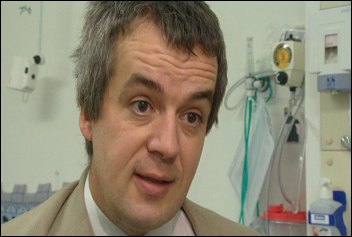 “Investment effectively needs to be in more frontline staff and you can see the investment we’ve had we spend on consultants and nurses and we do need more. We have put in a bid for nurses, not least to provide our dedicated transport team,” he says.
“Investment effectively needs to be in more frontline staff and you can see the investment we’ve had we spend on consultants and nurses and we do need more. We have put in a bid for nurses, not least to provide our dedicated transport team,” he says.
The region has asked the Government for extra money to fund a dedicated ambulance and the staff to run it. If money is forthcoming the transport service could be up and running by next summer.
In 2003 the government undertook a review of neo-natal intensive care. In response to the findings it pledged £72 million to help to save the lives of up to 300 babies each year. West Eye View will reveal how this region has spent its share of the windfall.
FOI requests by West Eye View to the eight hospital trusts in the Western Neo-natal Network, the Department of Health’s new neo-natal structure, expose the regional picture of a service in crisis during the months of June and July this year.
Research by BLISS shows that many neo-natal units were full up or at 90% capacity for most of the time. One criticism levelled at the government by BLISS is that it doesn’t know how well or badly the neo-natal service performs.
Social Care Minister Liam Byrne said: “I don’t know how frequently it happens.” He adds: “The challenge in getting these networks right is that on any given day there’ll be 110 babies born that need intensive support. Getting the right cots and the right nurses in the right place is a difficult job. And a lot of NHS staff work extremely hard on getting those decision right. Is it perfect? No it isn’t. And that’s why more money is needed and that’s why more work is needed to get the service to the standard that we want.”
West Eye View will be broadcast on November 8th at 7.30pm on ITV1.
RELATED LINKS:
